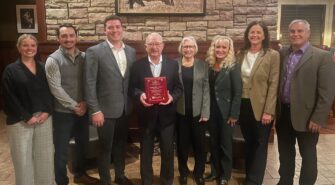3 Family Businesses Honored with Awards from Prairie Family Business Association
Recent News
Strategies for handling conflict especially key in family businesses
Posted in Q&A | November 8, 2017
There’s likely no such thing as a workplace without conflict. That can be especially true in family businesses.
But there are strategies for how to identify, prevent and resolve it.

Gayle Ver Hey, founder of Volt Strategy, will co-present with Reid Holsen, a Human Resources Manager/Labor Relations, a Lunch & Learn webinar Dec. 7 about conflict resolution in the workplace through the Prairie Family Business Association.
Lunch will be provided by sponsors at each host site.
In your work with family businesses, how have you found conflict in their workplaces differs from other businesses?
As you might expect, it’s more personal. Perceptions that were built years ago and situations that may have happened as children are brought along into the family working relationships. There’s also a unique dynamic in the role of employees versus family in decision-making and leadership. It’s different from the nonfamily corporate world where people are hired for a role, with job responsibilities and levels of authority clearly defined through job descriptions. That’s not always the case in family businesses.
Do you find family businesses sometimes struggle to recognize when conflict is occurring in their business? Why might that be?
Yes, I have seen that happen. I’m not sure it’s in all family businesses, but I do see a higher tendency of it happening in family businesses. It could be because over the years they have learned how to avoid conflict so they can move on. Or rather than make a parent or sibling upset, they learn to live with a situation that might seem too big to tackle.
What are some strategies for preventing conflict in the workplace?
I encourage people to become really aware of triggers in the family or within the organization that are causing conflict. Keep an ear to the ground to hear about ripples before they become waves. Also learn and practice active listening skills, which includes asking questions.
Without naming names, do you have an example of a family business you helped resolve conflict and some approaches you used for doing it?
Yes, in one family I worked with the brothers who were active in running the business had stopped talking directly with each other. The process started with interviewing each person individually to find the root causes of the issues they were having to find common ground. Then, it was a process of setting ground rules and getting conversations started again between them. It took regularly scheduled, facilitated, face-to-face meetings solely for the purpose of finding a way for them to build trust, respect and start working together again. We kept the goal in mind to find where they wanted the same outcome and where they were willing to make commitments to each other.
Are there some common mistakes families make in trying to resolve conflict?
Too often, family members bring their personal conflicts with each other into the office and aren’t aware of the impact this has on the morale and productivity of employees. Another common mistake I see is confiding in employees and sharing details of family conflict with them. This can tend to pull employees into the conflict and at times make them feel like they have to pick sides between family members.
What can people expect to leave your webinar having learned?
A better understanding of conflict resolution as a process without emotions tied to it. They will leave with tools and simple steps to help them in creating honest and difficult conversations with respect. This will help them work though conflict situations with more ease.



